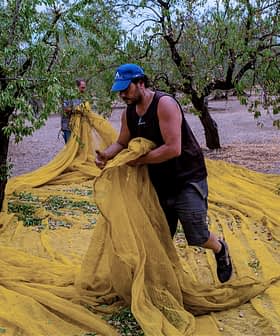Europe Joins Forces to Fight Xylella Fastidiosa
Under the Horizon 2020 program, the EU has joined 29 international partners in a research project to improve prevention, early detection and control of Xylella fastidiosa.
One of the projects that will be developed within the framework of Europe’s Horizon 2020 program for research and innovation carried out over the period from 2014 to 2020 is called XF-ACTORS.
It consists of a multidisciplinary research plan which aims to improve prevention, early detection and control of Xylella fastidiosa (Xf) under different phytosanitary conditions, with a view to optimize the impact of EU research programs and ensure coordination and integration between the groups and the networks involved.
The project aims for the strengthening of preventive measures by promoting integrated actions.
Xf has affected not only olive trees in the Southern part of Apulia, in Italy, with the related Olive Quick Decline Syndrome OQDS (or CoDiRO), but also ornamental plants and some landscape trees in other parts of Europe. “The overall goal of the research program is to assess Xf potential to spread throughout EU territory, while maximizing its impact through a multifactor approach, based on a seamless integration amongst the 29 partners involved,” as reported by the Community Research and Development Information Service of the European Commission.
These actions will be complementary to those laid down by the Project POnTE, to ensure the continuity of currently ongoing efforts.
The general objectives of the XF-ACTORS project are:
- To strengthen preventive measures against Xf through the implementation of EU certification programs, and develop a plan for establishing an EU Clean Plant Network.
- To support to the EU policy makers through the development of pest risk assessment tools, early detection instruments for field use, remote sensing technology and predictive modeling.
- To gather information on the pathogen biology, epidemiological traits and hosts under threat, with the collaboration of American research groups involved in long-established research.
- To identify the insect-bacteria interactions, for developing strategic control measures.
The final overall purpose includes a broad management strategy for diseases associated with Xf, suited both for integrated pest management and organic farming systems, to prevent Xf spread and control its economic and environmental/social impact.
The project, coordinated by Maria Saponari of the National Research Council of Italy CNR, is partnered with several groups, among which is the Euro-Mediterranean Center on Climate Change CMCC. “XF-ACTORS just started and CMCC will participate with an action focused on three main areas, including the implementation of climate projections analysis, the ecophysiological high-frequency monitoring and respective data analysis, and the implementation of physically based modeling of the olive tree,” the CMCC’s scientific leader, Monia Santini told Olive Oil Times.
“The project aims for the strengthening of preventive measures by promoting integrated actions, in addition to the expansion of knowledge on the biology, genetic and interaction of pathogen, guest and vector,” Santini added. “Moreover, the partnership will work on the development of sustainable management strategies to reduce the economic, environmental and social impacts of the disease.”






